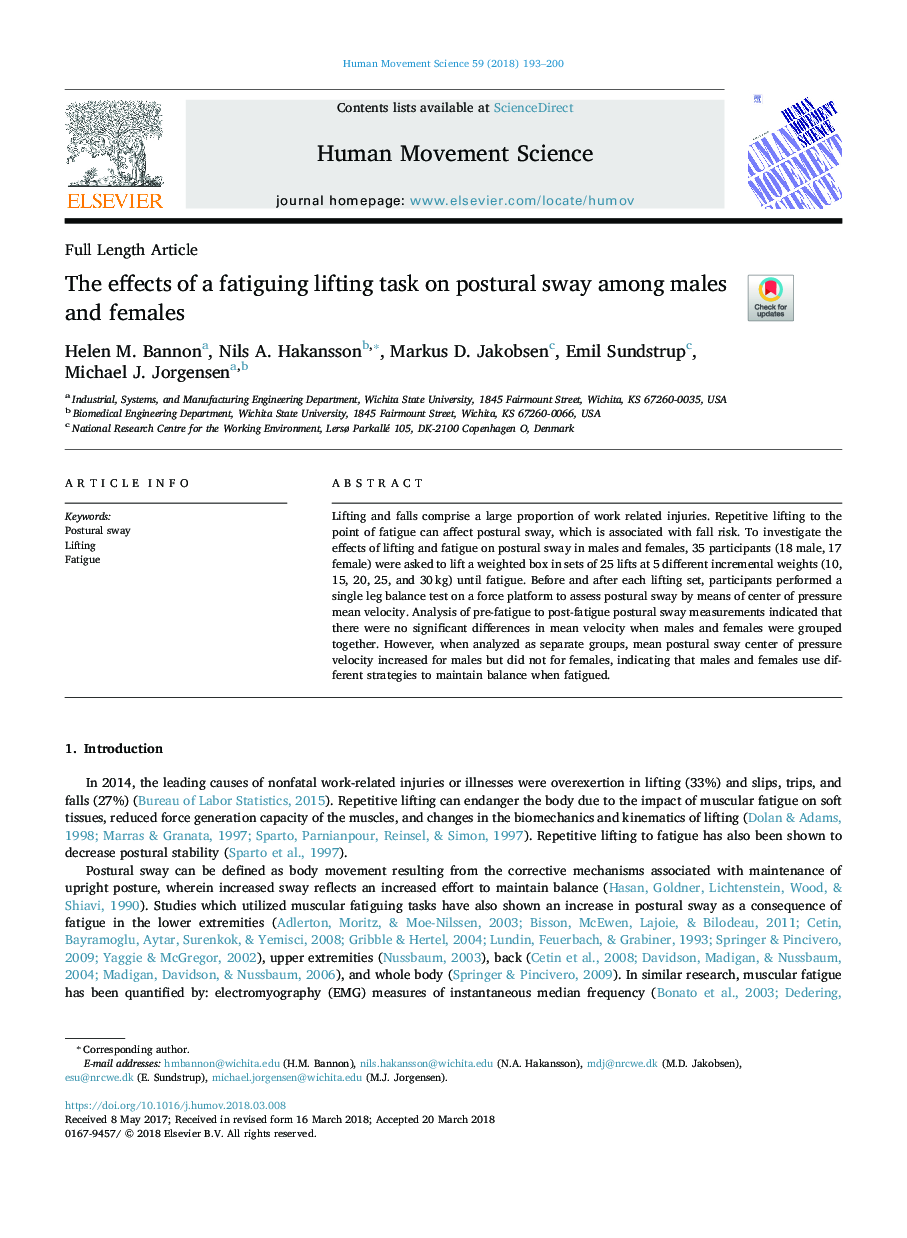| Article ID | Journal | Published Year | Pages | File Type |
|---|---|---|---|---|
| 7290906 | Human Movement Science | 2018 | 8 Pages |
Abstract
Lifting and falls comprise a large proportion of work related injuries. Repetitive lifting to the point of fatigue can affect postural sway, which is associated with fall risk. To investigate the effects of lifting and fatigue on postural sway in males and females, 35 participants (18 male, 17 female) were asked to lift a weighted box in sets of 25 lifts at 5 different incremental weights (10, 15, 20, 25, and 30â¯kg) until fatigue. Before and after each lifting set, participants performed a single leg balance test on a force platform to assess postural sway by means of center of pressure mean velocity. Analysis of pre-fatigue to post-fatigue postural sway measurements indicated that there were no significant differences in mean velocity when males and females were grouped together. However, when analyzed as separate groups, mean postural sway center of pressure velocity increased for males but did not for females, indicating that males and females use different strategies to maintain balance when fatigued.
Keywords
Related Topics
Life Sciences
Neuroscience
Cognitive Neuroscience
Authors
Helen M. Bannon, Nils A. Hakansson, Markus D. Jakobsen, Emil Sundstrup, Michael J. Jorgensen,
